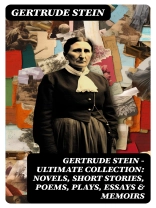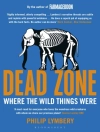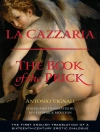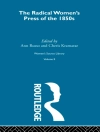In the ‘Gertrude Stein – Ultimate Collection, ‘ readers are presented with a comprehensive anthology of Stein’s diverse literary oeuvre, encompassing her innovative novels, striking short stories, evocative poems, theatrical works, insightful essays, and autobiographical sketches. Stein’s unique literary style is characterized by her pioneering use of language, repetition, and stream-of-consciousness narrative, which deconstructs traditional storytelling while exploring themes of identity, time, and the fluidity of perception. This collection not only showcases her contributions to modernist literature but reflects the broader avant-garde movements of the early 20th century, making it essential for understanding the evolution of contemporary writing. Gertrude Stein (1874-1946) was a groundbreaking American author and art collector, whose intellectual pursuits were influenced by her experiences in Paris during the expatriate cultural movement. A key figure in the literary and artistic circles of her time, Stein’s relationships with other eminent artists solidified her role as a catalyst for modernism. Her own struggles with identity and artistry profoundly shaped her writing, leading to a distinctive voice that challenged conventional norms and celebrated the unconventional. This ultimate collection is a must-read for enthusiasts of modernist literature and those who appreciate innovative narrative forms. Stein’s work invites readers to engage with the fluidity of language and thought, urging a re-examination of not only literary structures but also the very act of creation itself. Dive into the world of Gertrude Stein for an enriching experience that reshapes perspectives on art, life, and the very essence of writing.
About the author
Gertrude Stein (1874-1946) was an American novelist, poet, playwright, and art collector. Born in Pittsburgh and raised in Oakland, she spent most of her adult life in France. Stein attended Radcliffe College where she studied under William James, and later enrolled at Johns Hopkins Medical School before relocating to Paris in 1903. In Paris, she became a central figure in the avant-garde art world, hosting a famous salon attended by luminaries such as Picasso and Hemingway. Stein’s literary work is characterized by its experimental approach to language and narrative, eschewing traditional plot and structure in favor of a more stream-of-consciousness technique. Among her most notable works is ‘The Autobiography of Alice B. Toklas’ (1933), which is written in the voice of her life partner and aims to chronicle the development of modern art. Other significant texts include the novels ‘Three Lives’ (1909), and ‘The Making of Americans’ (1925), as well as her numerous poems and plays. Stein’s work was not widely recognized in her time but has since garnered critical acclaim for its innovative use of language and forthright exploration of identity and sexuality. Her extensive oeuvre is encapsulated in collections such as the ‘Gertrude Stein – Ultimate Collection: Novels, Short Stories, Poems, Plays, Essays & Memoirs’, offering invaluable insight into the mind of one of the early 20th century’s most interesting literary figures.












